Deep Sleep For Brain Health: Why It Matters
Deep, slow‑wave sleep is the most restorative stage of your nightly sleep cycle, and it is one of the strongest predictors of how sharp, calm, and resilient your brain feels the next day. When people talk about “sleeping like a rock,” they are usually describing this stage. For many, though, reaching and maintaining deeper sleep is surprisingly hard, especially when work stress, screens, and late‑night habits get in the way.
Deep sleep for brain health does far more than make you feel rested. During this phase, your brain:
-
Clears metabolic waste through the glymphatic system
-
Stabilizes and reorganizes memories
-
Recalibrates emotional circuits
-
Restores its energy supply
Growing research links poor deep sleep to impaired decision‑making, mood changes, and a higher risk of neurodegenerative conditions such as Alzheimer’s and Parkinson’s disease.
“Sleep is the single most effective thing we can do to reset our brain and body health each day.” — Matthew Walker, PhD, neuroscientist and author of Why We Sleep
This guide explains how deep sleep for brain health works, what goes wrong when you do not get enough of it, and the practical steps—ranging from lifestyle changes to targeted nutrients like glycine and reishi mushroom—to help your brain spend more time in truly restorative sleep.
What Deep Sleep For Brain Health Actually Is
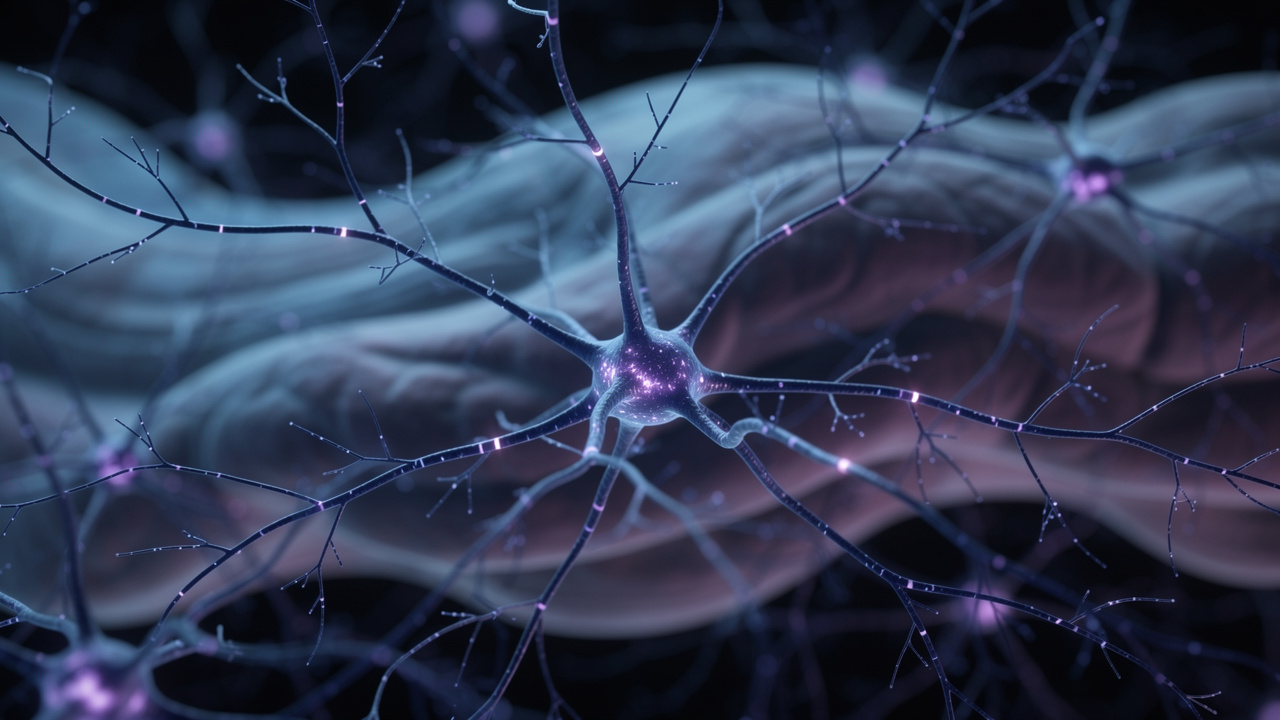
Deep sleep corresponds primarily to non‑rapid eye movement (NREM) Stage 3, often called slow‑wave sleep. On an EEG, this stage is defined by large, slow delta waves that signal a quiet but intensely restorative brain state.
During deep sleep for brain health:
-
The glymphatic system switches on. This “waste‑clearance” network washes cerebrospinal fluid through the brain, helping remove beta‑amyloid, tau, and other metabolites associated with cognitive decline.
-
Memories are consolidated. Short‑term memories stored in the hippocampus are replayed and transferred to longer‑term storage in the cortex, supporting learning and recall.
-
Neural circuits reset. Synapses downscale and re‑balance after a day of stimulation, which supports attention, creativity, and problem‑solving the next day.
-
Growth hormone is released. This supports cellular repair, including in brain tissue, and helps maintain a strong immune system.
As we age—or when stress, light exposure, or poor habits get in the way—time spent in deeper sleep tends to drop. Protecting this stage is one of the most effective ways to support your brain over decades.
The Architecture Of Sleep: Where Deep Sleep Fits In
You do not drop straight into deep sleep. Instead, you cycle through several stages about every 90 minutes. Understanding this architecture makes it easier to build routines that protect deep sleep for brain health.
|
Stage |
Type |
What Happens |
Role For Brain Health |
|---|---|---|---|
|
NREM Stage 1 |
Light |
Transition from wake to sleep; easy to wake |
Eases you into sleep |
|
NREM Stage 2 |
Light |
Heart rate and temperature drop; sleep spindles |
Begins memory processing and protects sleep continuity |
|
NREM Stage 3 |
Deep |
Slow delta waves; very hard to wake |
Core of deep sleep for brain health and restoration |
|
REM Sleep |
REM |
Rapid eye movement; vivid dreams; muscle atonia |
Emotional processing and additional memory work |
Most deep sleep happens in the first third of the night. As the night goes on, REM episodes lengthen while Stage 3 shrinks. This is why consistent bedtimes, reduced evening stimulation, and tools that shorten sleep onset all support deeper sleep without needing more total hours in bed.
How Your Brain Controls Deep Sleep
Behind every night of high‑quality deep sleep for brain health lies a coordinated network of brain regions and chemical messengers.
Key Brain Structures
-
Hypothalamus & Suprachiasmatic Nucleus (SCN)
The SCN is your master clock. It receives light input from your eyes and sets 24‑hour rhythms for sleep, body temperature, and hormones. When light hits your eyes late at night, the SCN delays sleep signals, pushing deep sleep later and reducing its total duration. -
Pineal Gland
In response to darkness, the pineal gland releases melatonin, signaling to the brain and body that it is time to prepare for sleep. Consistent, dim evenings help melatonin rise naturally or make supplements more effective. -
Brainstem & Basal Forebrain
These areas coordinate the switch between wake and sleep. They release GABA, an inhibitory neurotransmitter that quiets arousal centers so you can fall asleep and descend into deeper sleep. -
Thalamus
During NREM sleep, the thalamus turns down external sensory input, shielding the cortex from noise and light so the brain can focus on repair and glymphatic cleaning. -
Amygdala
This emotional hub is especially active during REM sleep but also depends on solid deep sleep. Poor deep sleep destabilizes amygdala activity, contributing to mood swings and anxiety.
Two Core Regulatory Systems
-
Circadian Rhythm
Your internal clock determines when you naturally feel sleepy and alert. Disruptions from jet lag, shift work, or irregular bedtimes can sharply reduce deep sleep for brain health even if total hours seem adequate. -
Sleep‑Wake Homeostasis
This system tracks how long you have been awake and builds “sleep pressure” via adenosine. The longer you stay awake, the more adenosine accumulates, making you sleepy. During deep sleep, adenosine clears. Caffeine blocks adenosine receptors, which can be helpful during the day but disruptive when used late, especially if you are trying to improve deeper sleep.
Neurotransmitters And Hormones
-
GABA calms neural activity and supports sleep onset.
-
Melatonin signals darkness and helps coordinate circadian timing.
-
Cortisol rises in the morning to promote alertness and should be low at night. Chronically high evening cortisol from stress interferes with deep sleep for brain health.
-
Orexin, histamine, norepinephrine, acetylcholine, and serotonin form the wake‑promoting network. Imbalances can cause difficulty falling or staying asleep.
When these systems are aligned, you drift into sleep quickly and spend ample time in Stage 3. When they are disrupted, deep sleep is usually the first casualty.
When Deep Sleep Is Lacking: Consequences For Brain And Body
Missing a night of deep sleep for brain health feels bad immediately—foggy thinking, slower reaction times, and a short temper. Over months and years, the impact becomes far more serious.
“The shorter your sleep, the shorter your life.” — Matthew Walker, PhD
Short‑Term Effects
-
Slower processing speed and reduced focus
-
Impaired learning and memory retention
-
Greater emotional reactivity and anxiety
-
Reduced creativity and problem‑solving
These changes are tied to shifts in brain plasticity and reduced activity in prefrontal regions that manage attention and impulse control.
Long‑Term Brain Risks
Chronic deficits in deeper sleep are increasingly linked to structural and functional brain changes:
-
Alzheimer’s disease and dementia
Deep sleep is when the glymphatic system most effectively clears beta‑amyloid. Nightly disruption allows these proteins to accumulate, which correlates with higher dementia risk. -
Parkinson’s disease and related disorders
Sleep disturbances, particularly REM sleep behavior disorder (acting out dreams), can precede motor symptoms by years and signal higher risk. -
Brain shrinkage
Imaging studies suggest that persistent sleep loss is associated with reduced brain volume, especially in regions responsible for executive function and memory.
Systemic Health Effects
Because deep sleep supports hormone balance, metabolism, and immunity, poor deep sleep for brain health also relates to:
-
Higher blood pressure and cardiovascular risk
-
Insulin resistance, weight gain, and increased diabetes risk
-
Weakened immune responses and more frequent illness
-
sleep and mental health, including depression and chronic anxiety
-
Greater seizure risk in susceptible individuals
In other words, deep sleep for brain health is also deep sleep for whole‑body health, and the impact of lifestyle choices on overall brain wellness extends far beyond just sleep duration.
How Much Deep Sleep For Brain Health Do You Need?
Total sleep needs vary by age and genetics, but quality matters just as much as quantity.
General Guidelines
-
Babies: 16–18 hours per day
-
School‑Age Children & Teens: About 9–10 hours
-
Adults: 7–9 hours
-
Older Adults: 7–8 hours, though sleep may be more fragmented
For most healthy adults, 13–23% of total sleep time is spent in Stage 3. That means in eight hours of sleep, roughly 60–110 minutes of deep sleep for brain health is typical.
Individual Differences
Your genetics and chronotype influence:
-
Whether you are naturally a “morning lark” or “night owl”
-
How quickly you build sleep pressure
-
How much deeper sleep you tend to get per night
A practical test: if you wake without an alarm, feel mentally clear, and stay alert through the day without heavy caffeine reliance, you are likely meeting your personal deep sleep needs—even if your schedule differs from others.
“Catching up” on weekends can help a bit, but irregular sleep schedules still disrupt circadian rhythms and can reduce deep sleep for brain health across the week.
Habits That Quietly Undermine Deep Sleep
Many high‑performing professionals eat well and exercise yet still feel unrefreshed. Often, subtle lifestyle patterns are draining deep sleep for brain health without obvious warning signs.
Irregular Sleep And Wake Times
-
Shifting bedtimes and wake times by several hours between weekdays and weekends confuses your internal clock.
-
Your brain struggles to predict when to produce melatonin and when to prioritize deeper sleep, leading to lighter, more fragmented nights.
Evening Screen Exposure
-
Blue‑rich light from phones, tablets, and laptops suppresses melatonin.
-
Late‑night scrolling keeps wake‑promoting circuits active, delaying deep sleep onset.
Stimulants, Alcohol, And Heavy Meals
-
Caffeine and nicotine—even in the afternoon—reduce deep sleep and increase nighttime awakenings.
-
Alcohol may shorten sleep latency but fragments sleep later and suppresses slow‑wave and REM stages.
-
Large, late meals can lead to reflux and blood sugar swings that wake you from Stage 3.
Chronic Stress And Anxiety
-
Elevated evening cortisol and adrenaline keep your nervous system in a “ready” state.
-
Racing thoughts and tension make it hard to drift into deep sleep for brain health, even when you feel exhausted.
Overtraining Or Too Little Movement
-
Intense late‑evening workouts keep heart rate and temperature elevated.
-
On the other hand, very sedentary days may not build enough sleep pressure to trigger long stretches of deeper sleep.
Identifying which of these patterns applies to you is the first step toward more restorative nights.
Evidence‑Based Ways To Improve Deep Sleep For Brain Health
The good news: modest, consistent changes can meaningfully increase your deep sleep for brain health within days to weeks. Below are approaches supported by research and refined in SLP1 resources.
1. Anchor Your Circadian Rhythm
-
Go to bed and wake up at the same time every day, including weekends.
-
Get bright natural light within an hour of waking; even 10–20 minutes helps reset your clock.
-
Dim overhead lights and use warmer light sources 1–2 hours before bed so melatonin can rise and deeper sleep can begin earlier in the night.
2. Design A Brain‑Friendly Sleep Environment
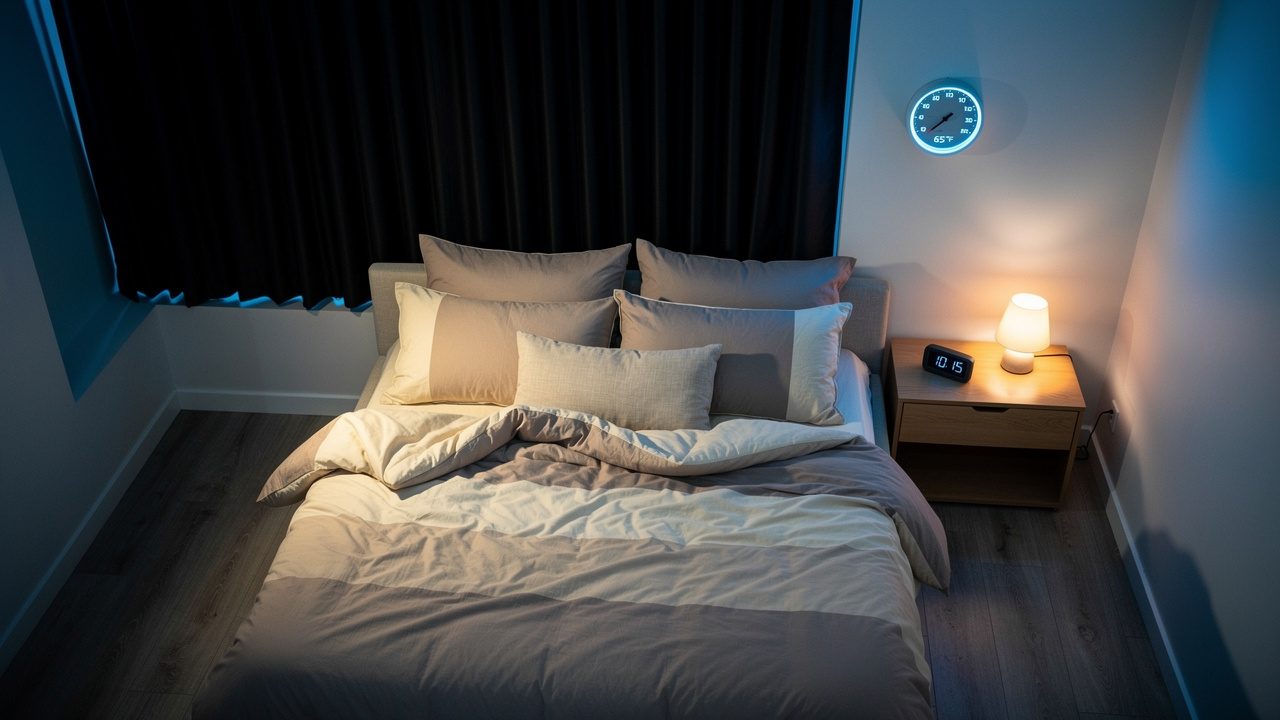
Create a bedroom that tells your brain, “This is where we sleep.”
-
Keep it dark (blackout curtains, eye mask).
-
Keep it quiet (earplugs, white‑noise machine) or use consistent background sound if you live in a noisy area.
-
Keep it cool, typically 60–67°F; a small drop in core body temperature promotes deep sleep for brain health.
-
Reserve the bed for sleep and intimacy, not work or scrolling, to strengthen the mental association with sleep.
3. Build A Wind‑Down Routine
Aim for a 30–60 minute buffer before bed where you move away from tasks and stimulation:
-
Gentle stretching or restorative yoga
-
Breathwork, progressive muscle relaxation, or mindfulness meditation
-
Reading a physical book or listening to calm music
These practices help quiet the nervous system and create a reliable runway into deeper sleep.
4. Support Deep Sleep Through Nutrition And Targeted Supplements

Nutrition and specific compounds can support deep sleep for brain health by nudging physiology in the right direction.
-
Magnesium‑rich foods (leafy greens, nuts, seeds) help relax muscles and support GABA activity.
-
Evening carbohydrates in moderate amounts can assist tryptophan transport into the brain, supporting serotonin and melatonin.
-
Glycine
As explained in Glycine for Sleep: A Comprehensive Guide, this amino acid can lower core body temperature and promote a sense of calm, improving sleep onset and deep sleep quality. -
Reishi mushroom
Reishi Mushroom and Sleep: A Practical Guide describes how this adaptogenic fungus may modulate stress responses and support longer slow‑wave sleep. -
Melatonin and advanced delivery systems
Traditional oral melatonin can be helpful when circadian timing is off. Melatonin Nasal Spray: A Comprehensive Guide explores a faster‑acting route that may support smooth transitions into deeper sleep for those who struggle with prolonged sleep latency. -
Premium multi‑ingredient formulas
High‑quality blends like SLP1’s deeper sleep are designed to combine several of these mechanisms—temperature regulation, calming neurotransmitter support, and circadian alignment—using clean, transparent ingredients.
Always discuss new supplements with a healthcare provider, especially if you are pregnant, nursing, or taking medications.
5. Move Your Body—But At The Right Times

Regular physical activity is one of the most reliable ways to deepen sleep:
-
Aim for at least 30 minutes of moderate exercise most days.
-
Favor morning or early afternoon workouts; avoid intense training within three hours of bedtime.
-
Outdoor movement offers a double benefit: exercise plus bright light exposure to anchor circadian rhythms.
Balanced movement patterns help your body build enough sleep pressure to spend more time in deep sleep for brain health.
6. Use Personalized Protocols When Life Is Complex
Certain life stages, such as early parenthood or demanding careers, can make consistent sleep feel impossible. Programs like Reclaim Your Sleep: The SLP1 Protocol for Moms to Win Their Sleep Back acknowledge real‑world constraints and provide targeted strategies for:
-
Napping wisely without sacrificing nighttime deeper sleep
-
Sharing nighttime responsibilities to protect at least one consolidated sleep block
-
Using nutrition, timing, and calming practices that fit into already full days
Personalized approaches like this can restore meaningful deep sleep for brain health even when perfect schedules are not realistic.
Technology, Data, And Professional Help
Modern tools can help you understand and support your deep sleep—as long as you know what they can and cannot measure.
Wearables And Sleep Apps
Smartwatches, rings, and phone apps estimate sleep stages using movement, heart rate, and sometimes temperature:
-
They excel at spotting patterns: bedtime drift, total sleep time, and consistency from night to night.
-
Their breakdown of light, deep, and REM sleep is an estimate, not a direct brain‑wave measurement, but trends can still guide changes.
You can use this data to see how changes—like a new evening routine, supplements from Glycine for Sleep: A Comprehensive Guide, or reishi from Reishi Mushroom and Sleep: A Practical Guide—affect your time in deeper sleep over several weeks.
Smart Home Support
-
Automated, dimming lights can align your environment with natural sunset patterns.
-
Thermostats or smart beds that cool the room slightly at night can help trigger deep sleep for brain health.
-
White‑noise machines or sound apps can mask irregular noise that might otherwise pull you out of Stage 3.
When To Seek Clinical Support
If you consistently:
-
Take more than 30–40 minutes to fall asleep
-
Wake frequently and cannot return to sleep
-
Snore loudly, gasp, or stop breathing
-
Wake exhausted despite spending enough time in bed
…it is time to talk to a healthcare provider.
They may suggest:
-
Cognitive Behavioral Therapy for Insomnia (CBT‑I): A structured, non‑drug approach that reshapes thoughts and behaviors around sleep and is highly effective for chronic insomnia.
-
Sleep studies (polysomnography): Overnight monitoring of brain waves, breathing, oxygen levels, and muscle activity to diagnose conditions like sleep apnea, REM sleep behavior disorder, or periodic limb movements.
Clinical care can work hand‑in‑hand with natural strategies and premium formulations such as SLP1’s deeper sleep to rebuild deep sleep for brain health.
Bringing It All Together
Deep sleep for brain health is not a luxury; it is a daily requirement for clear thinking, emotional balance, and long‑term cognitive resilience. During this stage, your brain consolidates memories, clears metabolic waste, restores its energy reserves, and recalibrates the networks that govern focus and mood.
Protecting and improving deeper sleep starts with the fundamentals: steady bed and wake times, thoughtful light exposure, a cool and quiet bedroom, and routines that signal to your nervous system that it is safe to let go. Nutrition, movement, and targeted support from compounds outlined in Glycine for Sleep: A Comprehensive Guide and Reishi Mushroom and Sleep: A Practical Guide can further deepen your nightly restoration. For those who need faster onset or more precise circadian support, Melatonin Nasal Spray: A Comprehensive Guide offers an additional path.
If your life stage or responsibilities make sleep especially challenging, structured frameworks like Reclaim Your Sleep: The SLP1 Protocol for Moms to Win Their Sleep Back provide realistic strategies to rebuild meaningful stretches of deep sleep for brain health without requiring a perfect schedule.
By combining smart habits, data‑informed adjustments, and high‑quality support such as SLP1’s deeper sleep, you can steadily reshape your nights. The payoff is a brain that feels sharper, steadier, and more resilient—not just tomorrow morning, but for years to come.
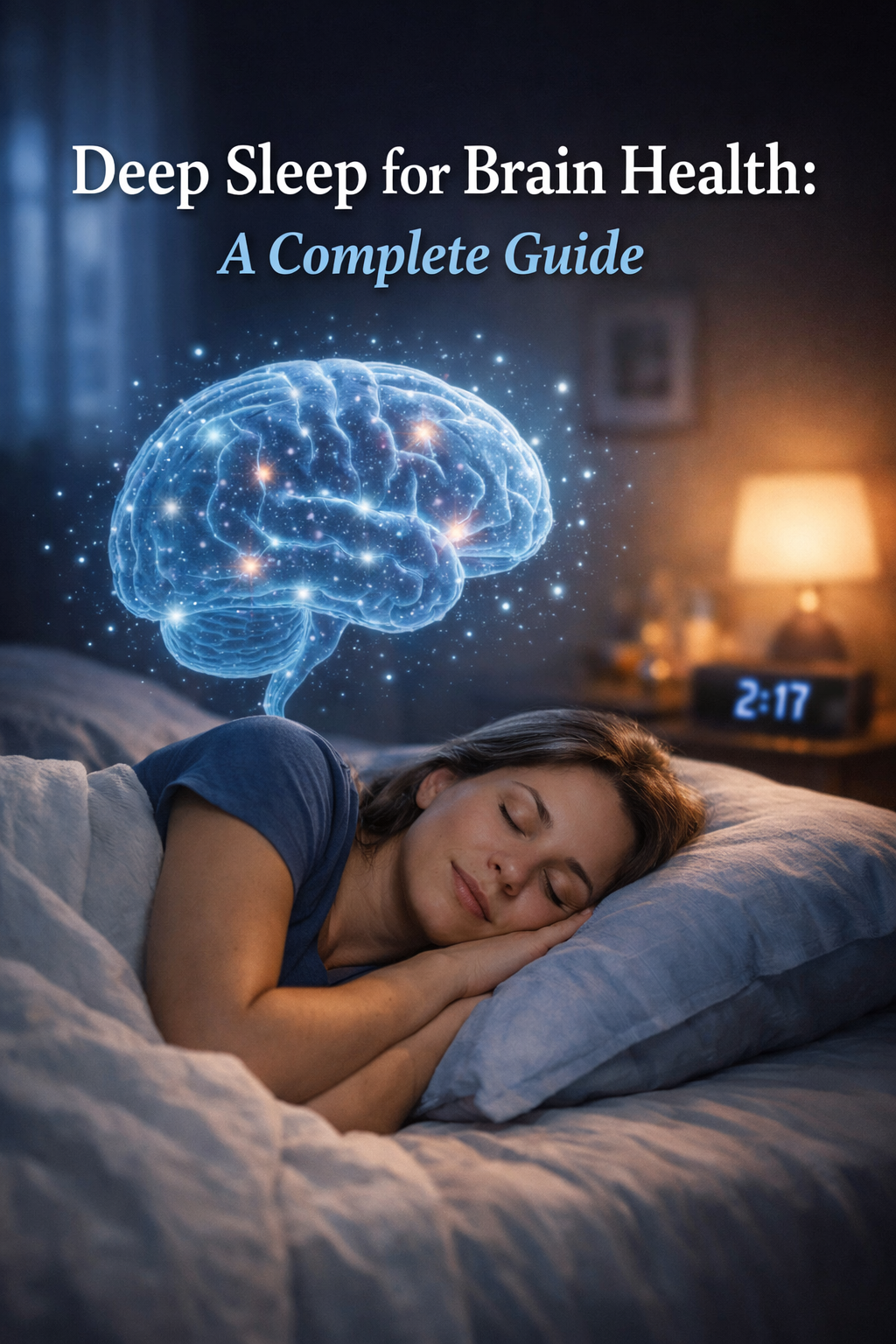
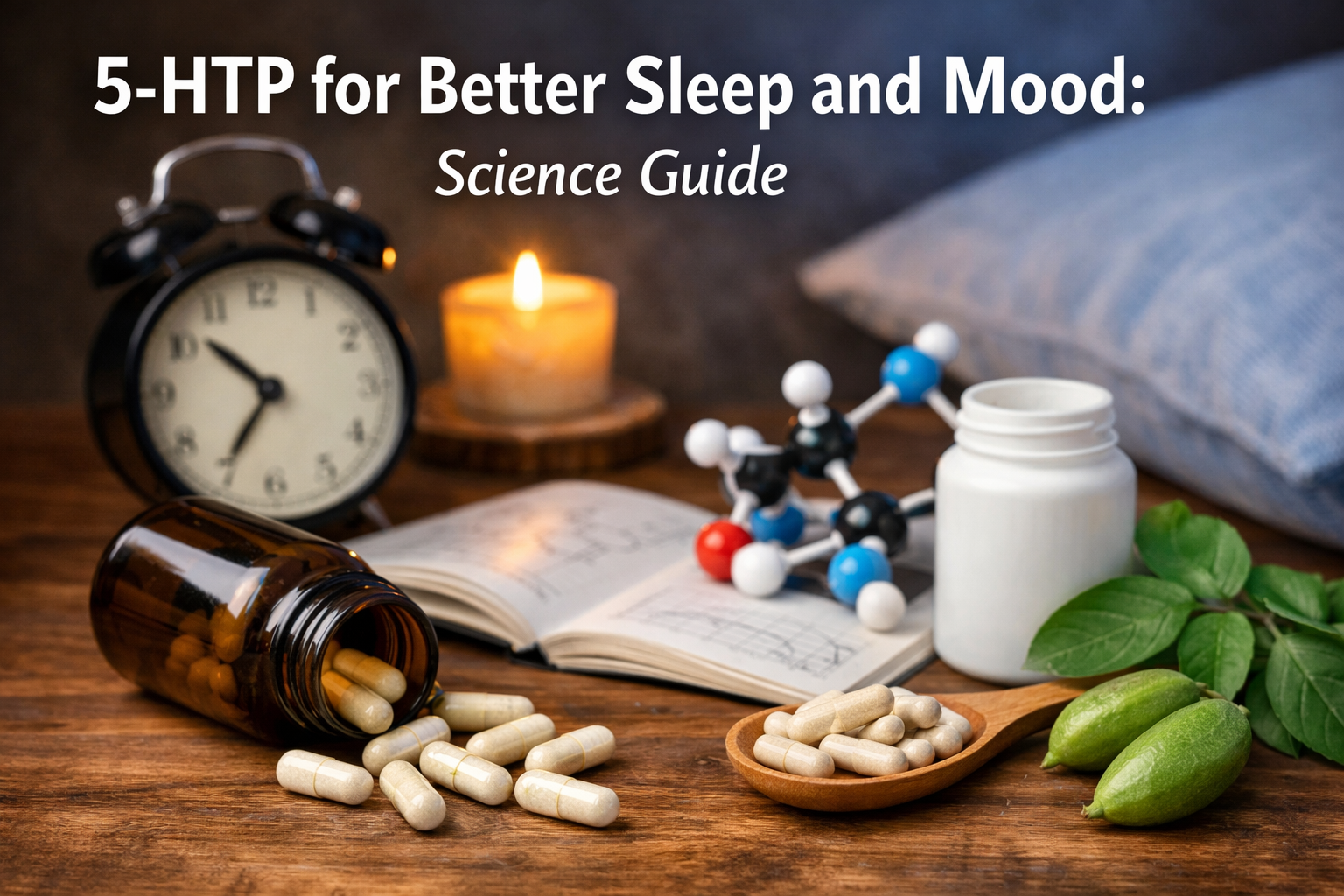
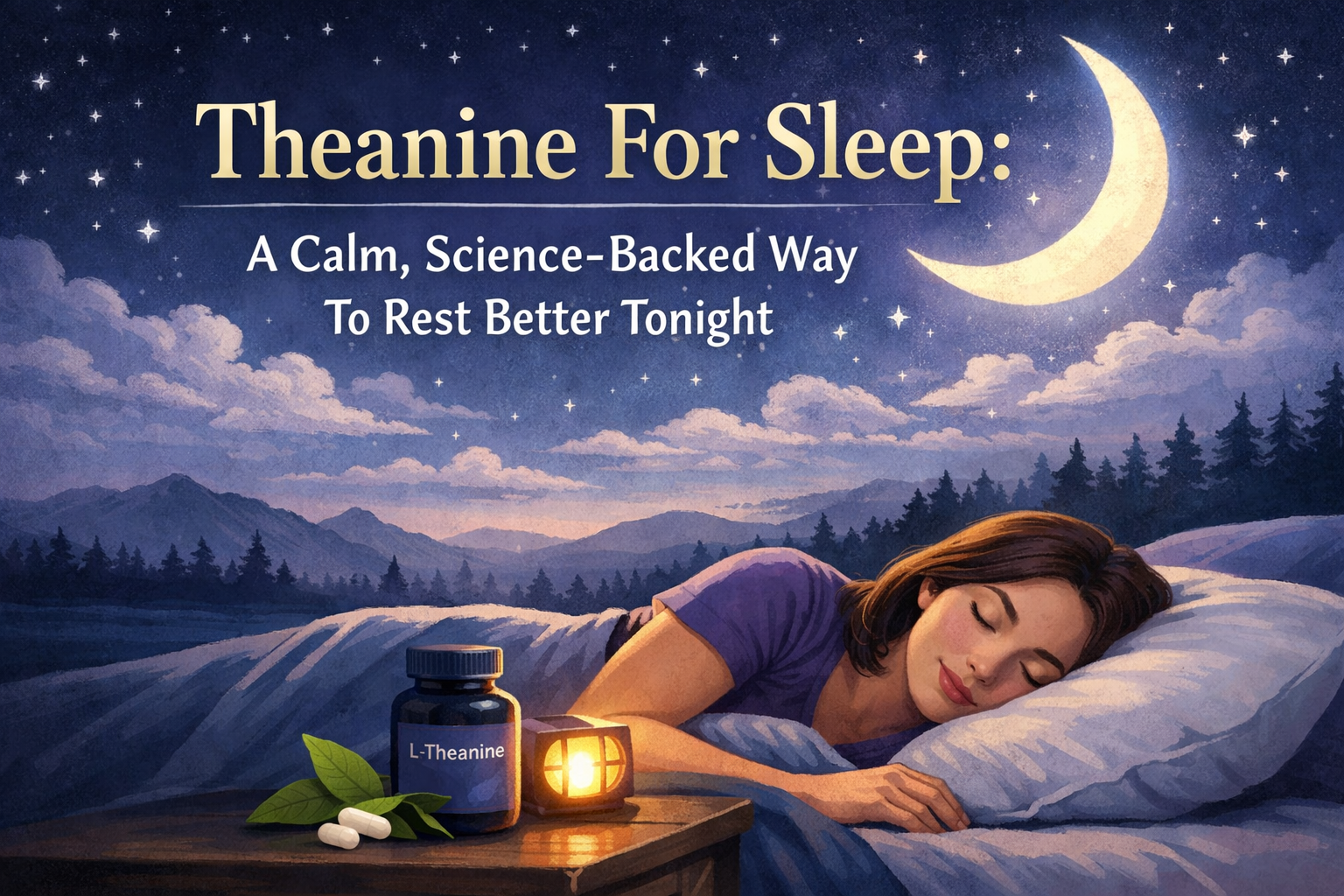
Leave a comment
This site is protected by hCaptcha and the hCaptcha Privacy Policy and Terms of Service apply.